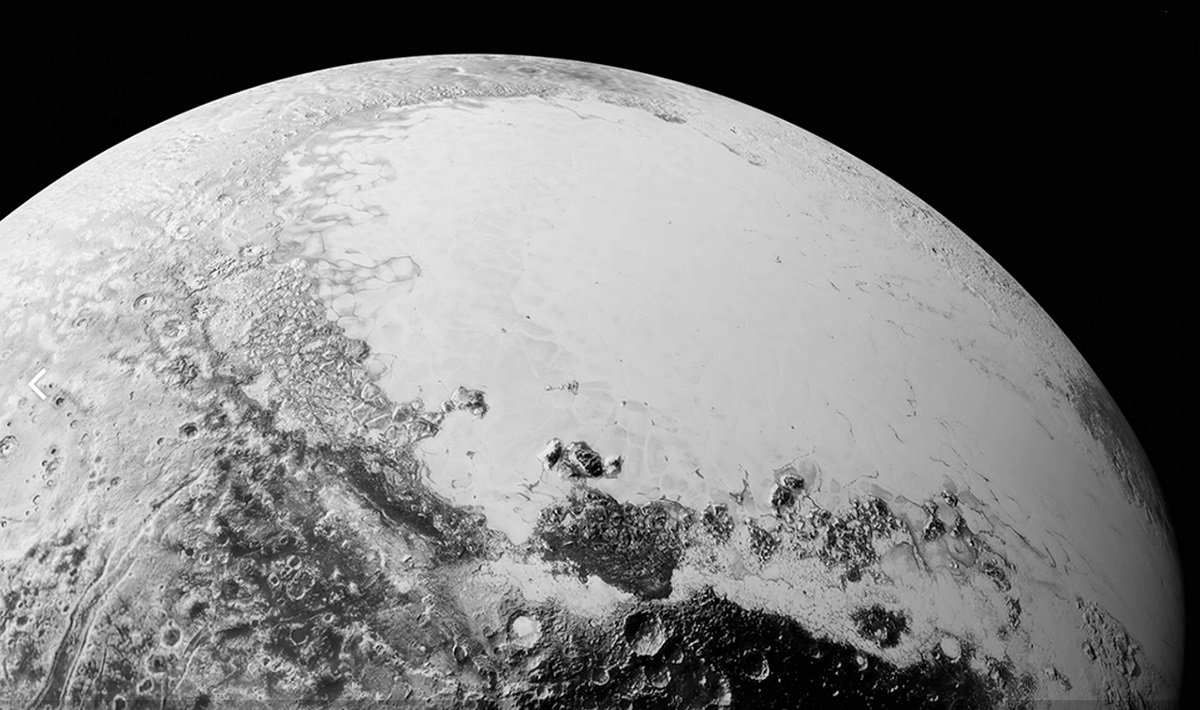© 2000-2023 - Enkey Magazine - All rights reserved
ENKEY SNC - VAT ID IT03202450924 / REA Code CA253701 - Phone. 078162719
The human being is an explorer since always, he loves pushing himself beyond the limits, touching ever more a bit further, a bit higher, pushing himself beyond the edges of the ocean and of the space. We want to know what’s out there more than everything else. Inside our boundless universe, in the majestic galaxy, but first of all inside our small and cosy solar system, until its edges, until Pluto.
For centuries we thought that out there there is nothing for us to find, no life, no oxygen or water, but we were wrong. Unrealistically we thought that our beautiful blue and green planet was unique, but the water, the building blocks of life are everywhere around us, we just have to look for them.
We always believed that the life is so thriving on Earth for the water, by thinking that it’s just ours, however we found the water even out there. We found the building blocks of life on the Moon, on Mars, on Europe, Enceladus and Charon, the moons of Jupiter, Saturn and, finally, we discovered that the water is even on the same Pluto.
Pluto and New Horizons
Pluto orbits in the most external part of the Solar System. For years it’s been considered the ninth and last planet of it. In the 2006 though it’s been downgraded to dwarf planet, after we discovered that in the Kuiper belt there are many objects with the same size.
For years it remained surrounded by mystery, remaining just a little dot on the edges of our solar system until when we were able to catch more informations. Around the 2000 the observations of the telescope Hubble started and, in the 2015, New Horizons finally arrived next to the last ex planet of the solar system.
So we started to better know the one that was just a little dot at the edges of the solar system. The fly by of New Horizons revealed that under the frozen crust of Pluto is hidden a liquid ocean.
But since there the questions started: how does the water remain liquid at such temperatures? On Pluto’s surface, infact, there are temperatures around the -200°C.
Pluto’s ocean
The presence of a liquid ocean under the frozen crust of Pluto has been revealed in the wester lobe of the plain Sputnik Planitia. It’s a region carefully observed during the passage of New Horizons which is large about thousand kilometers.
The Sputnik Planitia, unless to be jagged and covered of craters like the rest of the dwarf planet’s surface, is smooth and clear, covered by a layer of frozen azote, under which is hidden the ocean of Pluto.

Unlike the other places of the solar system where we found the water, like Europe or Enceladus, Pluto doesn’t orbit around a gaseous giant that allows the tides. They, infact, prevent that the water on Jupiter and Saturn’s satellites freeze. So how is possible that the water on Pluto doesn’t freeze?
The first hypothesis
Few years after that discovery some hypothesis start to arise but they have to be verified. From the University of Hokkaido, in Japan, arrives the hypothesis made by the researcher Shunichi Kamata. According to Kamata the underground ocean of Pluto is protected by a gaseous layer that avoids the direct contact with the frozen surface.
Kamata and his team believe that the ocean is protected by hydrate clathrates, gases trapped inside water molecules. They isolate the ocean from the impervious and frozen surrounder environment, by keeping it liquid. Without the hydrate clathrates the ocean would freeze hundreds of thousands years ago.

According to the researchers of Hokkaido, the gas trapped in the water molecules should be methane.
This revealing remembers us one more time how much our feeling of the life is limited. If there is liquid water on a planet so far from its star, why shouldn’t it be even on many other dwarf planets on the edges of every solar system?
Do we really know where to go looking for life?
This post is also available in:
 Italiano
Italiano

